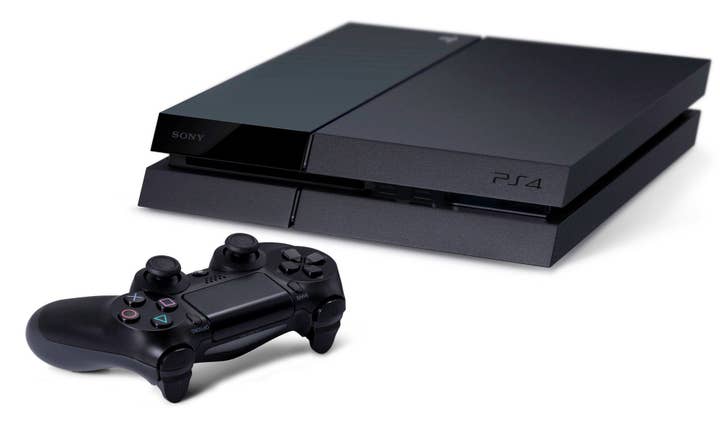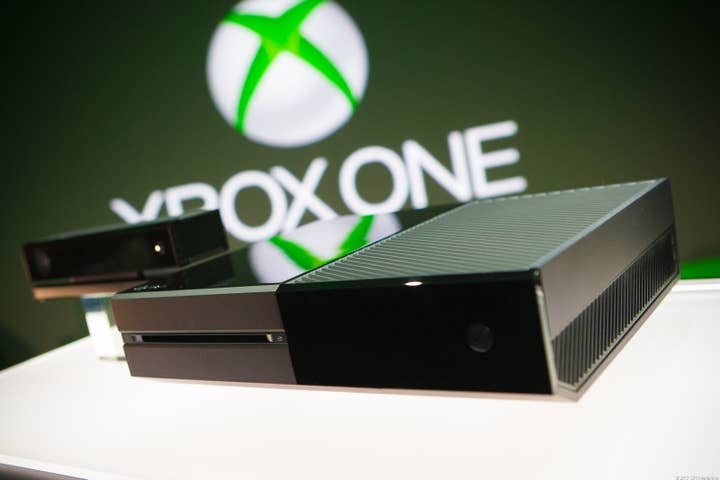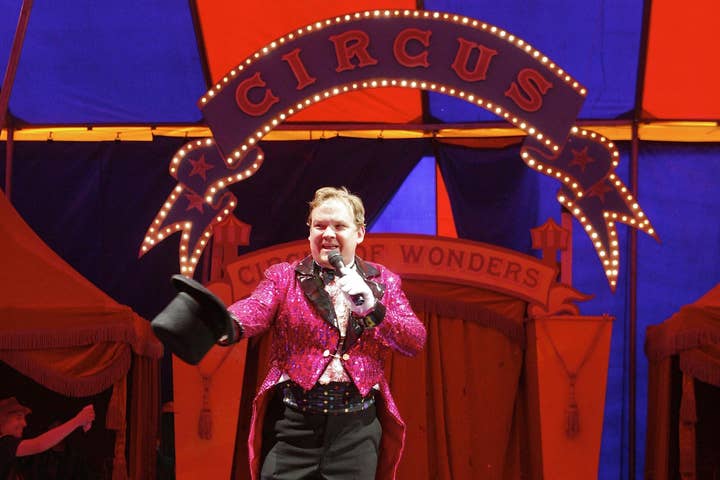Roundtable: E3 through a distant lens
The UK team sums up its first impressions from afar
Did anybody mention that the circus was in town? It's full of incredible entertainments, feats to fascinate and delight! There's juggling and lion-taming and even the occasional clown. Yes, E3 has arrived with all its pomp and circumstance - made double by rampantly spilling details of a whole new generation of consoles to argue over in the comment threads of websites for years to come. With Nintendo's fairly timid showing this afternoon, we've now seen what all the big guns have brought to bear - so what did the GamesIndustry International team on the ground in the UK make of it all? Read on for our first impressions of the first wave.
Rachel Weber
It's strange to think there was a time when I didn't stay up until 3am to watch men in suits tell me what the biggest and most exciting games of the next year or so were going to be. When my purchases weren't decided months in advance and secured online, but happened in an actual shop after a bit of browsing. It's how I grew up on treasures like Rick Dangerous, Sinbad and the Throne of the Falcon and Captain Dynamo. I suppose it's a sign that the games industry has grown into something more akin to the film or music industry, but it gives everything a greasy salesman sheen that sometimes feels a bit incongruous when you're trying to sell me a game about dragons.
But then if we didn't have the likes of EA, Ubisoft, Sony and Microsoft hiring palatial auditoriums to sell their games, then we wouldn't get to experience magical moments like a slam poet dropping some verses to celebrate EA Sports, or rapper Drake, looking like he got lost on the way out of the club and held hostage by Andrew Wilson, appearing to say he loved FIFA. Although yes, Aisha Tyler presenting the Ubisoft conference did give me #girlwood.
Microsoft made sure they focused purely on the games, as did Ubi and EA, while Sony made the most of being the cheaper, and more consumer friendly machine. And Nintendo... well... let's just say there was some Mario. With all the sincerity of Norman Bates handing out complimentary shower gels, the executives of these industry titans paraded game after game, teaser trailer after teaser trailer, and sequels by the fistful.
"it gives everything a greasy salesman sheen that sometimes feels a bit incongruous when you're trying to sell me a game about dragons"
Rachel
Stand out games for me were The Division from Massive, all ruined cities and co-op, although the cynic in me wonders if there have ever been a group of online gamers in the world that have been able to play that nicely together. I'm always excited by anything Quantic Dream are doing for next-gen, even if that thing is apparently a tech demo featuring David Gant as a 90 year old Draco Malfoy, and for me Destiny was the most attractive of the big shooters. Special shout outs also have to go to Transition, and a PC favourite of mine, Don't Starve, getting picked up by PlayStation. (You can shave a buffalo in that game, and then make a hat with the wool. Amazing.)
Note none of the above are sequels, and that's purely because I find it hard to get excited about something that's always there. It's the same way I feel about breakfast cereal, I'm glad that it's there and I always buy it, but I'm not going to do a little dance of joy every time they bring out a new one. EA's big finish was a sequel to a 2009 game that nobody bought, Mirror's Edge, and Microsoft was all like "surprise! Halo!" as if there won't be a new Halo every couple of years until the apocalypse comes and someone realises cockroaches don't have thumbs.

What was also noticeable was the absences, no The Last Guardian (time to bury the catdogbird in the garden next to Totoro the hamster) or anything from Rockstar, even though we were promised Agent in 2011, and if Rockstar isn't planning to make a next-gen GTA V then I'll eat my Up-n-Atom Burger t-shirt, and Nintendo manages to consistently disappoint me on the Harvest Moon Wii U front.
So if I had to pick a winner, who would it be? (Apart from event venues and mid-priced caterers of Los Angeles). I hate to join the PlayStation branded party, but the cheeky "game sharing video" was a master stroke on Sony's part. One clip it made all Microsoft's po-faced posturing look ridiculous. Whether that will translate into sales is another matter, if it was a smart move in regards to their relationship with retailers I don't know, but I can tell you I've already pre-ordered my PlayStation 4. My Xbox One? With the higher price and the online restrictions, I'm going to have to think about that for a little while longer.
Matthew Handrahan
The last four weeks must have been tough on Microsoft's executives, but it is only today that I feel a twinge of sympathy.
The mealy-mouthed, multimedia unveiling of the Xbox One a few weeks ago is the sort of corporate bungling for which any company should expect to be publicly excoriated. The subsequent reveal of its policies around used games and online connectivity was akin to reapplying the plaster only to rip it off for a second time. However, yesterday at E3, Microsoft did exactly what its public had asked, and it did it with a minimum of fuss and a notable absence of celebrity cameos. We wanted games and we got them, but it was too late. Microsoft had already loaded Sony's gun.
I watched Sony's press conference for its customary two-hour running time, and it has never felt more bloated and unnecessary. Sony won the crowd - and a good amount of the engaged audience watching online - in the time it took to say a number and outline its diametrically opposed stance on two key issues. By my calculations, Jack Tretton could have walked out, said ten words, dropped the mic and walked away to the exact same level of excitement and applause. It reminded me of nothing more than Muhammad Ali's "rope-a-dope" ploy; the lumbering opponent toppled with a few choice blows after talking itself into exhaustion.
"On the strength of the games alone Microsoft made the strongest case for its new platform"
Matthew
And like I say, I have a twinge of sympathy. On the strength of the games alone Microsoft made the strongest case for its new platform: a fistful of exclusives that offered diversity and the potential to sell systems in a way that Sony's line-up never quite matched. Ultimately, though, that may prove to be the emptiest of victories, because the people who are building the Xbox One and designing its strategy will have been forced to listen to the sheer, cathartic delight of the watching world at Sony's rhetoric - whoops and screams meant as much for their ears as it was for those working on the PlayStation 4. For the chunk of the console audience accurately represented by the whims and opinions of games journalists - and its exact size and importance is very much open to debate - Sony has displayed better judgment in both price and policy than Microsoft.
Nevertheless, it's too early to call it a total K.O., Microsoft simply has deeper pockets than Sony, and if it managed to sell more than 20 million units of the original Kinect I'm pretty sure it can raise interest in the Xbox One - anti-consumer policies and all.
Elsewhere, picking were slim. Ubisoft seemed to be coasting on the same store of goodwill it generated with its excellent showing at last year's conference, and the quality of the games it has released since. Despite Massive's promising Tom Clancy-branded online shooter The Division, Watch Dogs remains Ubisoft's most exciting prospect - assuming that, like me, you have grown a little weary of Assassin's Creed's relentless production schedule and apparent loss of identity. But that still placed Ubisoft ahead of Electronic Arts, which floundered badly in its attempt to convince the world that more FIFA, more Madden, more Need For Speed, more Dragon Age and a shooter from PopCap comprised a rousing vision of the next generation. Mirror's Edge 2 and Star Wars Battlefront hold more promise, to be sure, but only a fool would bet on seeing either before late 2014. EA is a company in dire need of some consumer excitement, and it needs it an awful lot sooner than that.
"it's too early to call it a total K.O., Microsoft simply has deeper pockets than Sony"
Matthew
All of which leaves Nintendo, perhaps the biggest disappointment of all. The company's decision to back away from the press conferences this year has been the subject of a great deal of speculation, with the optimists choosing to believe that it simply wanted the games to do the talking. And there were games, for sure; many that will delight stone-cold fans, but few that gave even a passing mention of the Wii U's unique features, fewer still that seem capable of addressing its unfortunate trajectory, and far too many that won't even have the opportunity to try until 2014.
If this was Nintendo's attempt at a rallying cry for its nascent platform before the Xbox One and PlayStation 4 hit the market, then it was deeply unimpressive. All of a sudden, the suggestion that the Wii U is just another GameCube or - dare I say it - DreamCast no longer seem quite so harsh, or so fanciful.
Dan Pearson
So, we've had the spectacle, the excess and the glamour. We've run the gamut between multi-million dollar blockbuster and genre-busting indie upstarts, with all the exclusives, franchises, reboots and embarrassing celebrity endorsements along the way. Like over-eager mother birds, the platform holders have rammed content down our necks faster than we could possibly digest it, reaffirmations of the future of console gaming running unfettered down our chins whilst we squawk noisily for more. Much of the content has been fresh, some of it - to stretch the analogy a little, regurgitated. Even the most jaded of us has seen things which has brought smiles to our faces. Games are awesome, they're getting better all the time and that makes me happy.
Still, people like to know who 'won', and what that means for the future. Eventually, for me, it essentially all comes down to the triumvirate of cliches at the heart of every good gangster movie: money, power and respect.
"it essentially all comes down to the triumvirate of cliches at the heart of every good gangster movie: money, power and respect"
Dan
Power-wise we have a pretty even balance - between two platforms at least. At the first glance of what we've seen this week, both the Xbox One and the PS4 are capable of pushing the sort of polygonal equations which we'll leave it to Digital Foundry to examine. Visually they have been virtually on a par, Nintendo still seemingly happy to sit back and hope to become the family-friendly tortoise that overtakes the hares. Whilst there'll no doubt be subtle differences which demarcate Sony and Microsoft's technical offerings, we all know that it's in the interests of both parties to keep things roughly abreast in order to make things easier for the multiplatform games which will make up the broadest slate of the coming generation.
What that power will be used for is clearly much more important. We've seen plenty of what we all expected: cars, guns, explosions and sport. That these genre mainstays played such a large part should prove a surprise to nobody. They are the bricks and mortar of gaming, after all - without their bread and butter we would have nothing upon which to spread the delicious jam of brave innovation. They have their place and that should be embraced: playing them will be a new generation of gamers who haven't already played all of the games we're whining about them riffing endlessly on. And, in ten years time, that generation itself can whine about how nobody has really innovated in the FPS genre since those age old-classics Titanfall and Destiny.
Alongside these predictable but noisy staples we've also seen some interesting new faces, from developers like SuperGiant, Capybara and Klei. Whichever box you choose, you'll have nuggets of delirious indie gold to ingest alongside the blockbusters, but it's Sony which is undoubtedly winning the fight for the hearts and minds of indies and their fans. This is where the respect part of the equation begins to emerge - and for developers it can be summed up in a single phrase: self-publishing.
Have your crazy ideas, bring them to us and we'll put them in our storefront. Win or lose, you'll walk away owning your IP. Success, or failure, is on your own terms, Sony seems to be saying. You make it, we'll sell it, but it's still yours. Here, Microsoft's tendency to flick the switch marked corporate control becomes a bit more obvious.

There are already precious few indie developers with a positive story to tell about their XBL experiences and plenty who'll tell you all about the bad times. Microsoft could have, should have, buried that reputation here, but they chose to perpetuate it with stubbornness instead. It's a bad move, and one that speaks of a real lack of engagement. Even Big Phil, who has the tenacity and charisma to get away with an awful lot, may as well have been telling us that the moon was made of cheese when he claimed that "Nobody has been more committed to indies than Microsoft."
As if treating developers as company assets wasn't enough, MS has slowly been extending a middle finger to the concept of ownership over the last few weeks. You might be giving them the money, but don't go thinking that you actually own anything. You can play with it, for a while, but if you want to swap your toys with any of the other kids, Mattrick and co. will be there to take a slice of the pie.
Of course, this give Sony the easiest job in the world in formulating its response - something it did with joyful aplomb. "When gamers buy a disc, they have the right to use that disc," said Tretton, barely able to suppress his glee at such an easy win. "Your games won't stop working if you don't check in after 24 hours."
"whilst the option remains to allow your customer to do whatever they wish with the games they're buying, not to do so makes you look like a cruel suit with a rod up their arse"
Respect for the creators, respect for the consumers. The Corleone family would be proud. In practice, what Sony is doing is only building a levee against the eventual flood of a nigh-inevitable all-digital generation where reselling will be a thing of the past. Yet, whilst the option still remains to allow your customer to do whatever they wish with the games they're buying, and somebody is doing so, not to allow it makes you look like a cruel suit with a rod up their arse. In one fell-swoop, Sony has taken the moral high ground and tailored itself a pretty convincing 'good-guy' costume just in time for the party.
But, just like in the denouement of all of those mob flicks which were the origin of this particularly drawn out metaphor, in the end,the only thing that really matters is the money. By undercutting the Xbox One by $100, €100 and £80, the PS4 becomes the defacto choice for cash-strapped parents making a choice this Christmas. We've seen time and time again that pitching your launch price too high is a mistake which it takes time and humility to recover from - and we know Microsoft isn't big on at least one of those. That number is, like it or not, going to be the bottom line for a lot of shoppers.
Nintendo fans, this is the paragraph where I was going to add in my thoughts on the announcements of the E3 special of Nintendo direct, but I don't think you want to read those. Don't get angry, I'm not writing it off; Nintendo will continue to make money at comfortable rates one way or another, but this is not the company's moment in the spotlight.
Round one, then, to Sony - let's make this a fight to remember.

